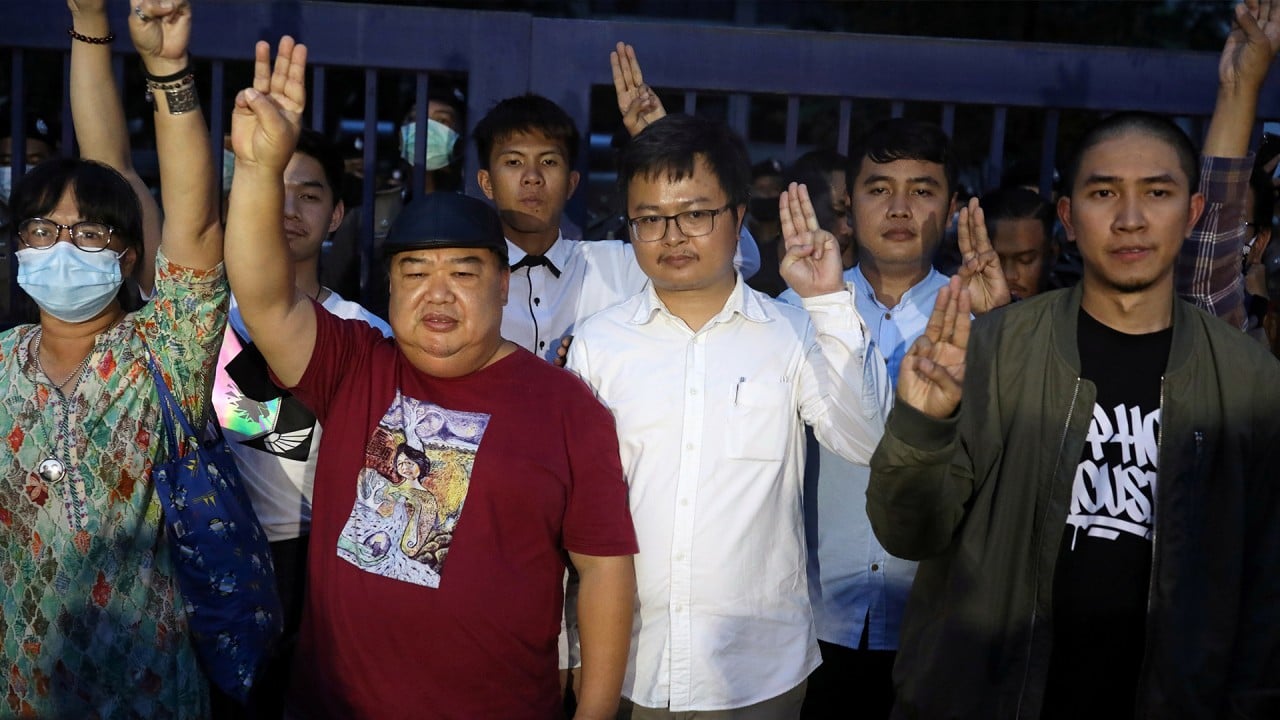
01:48
Thailand arrests at least 8 activists in latest crackdown on anti-government protests
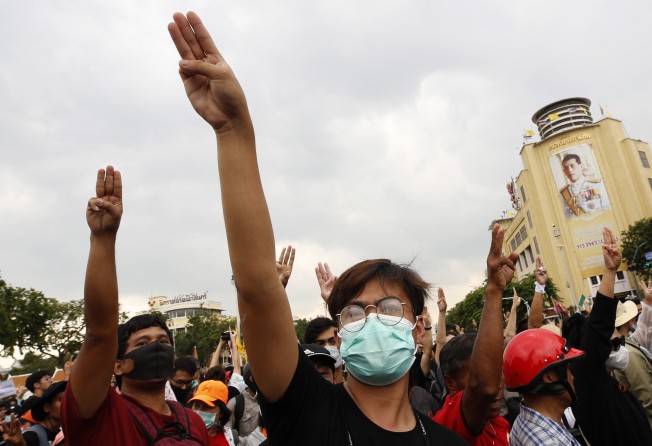
A new phase of political chaos, on top of the coronavirus pandemic and economic woes, is pushing Thailand in an unpredictable direction.
Youth-led pro-democracy protests are demanding the removal of the government led by former junta chief Prayuth Chan-ocha, a new constitution and limits on the monarchy – the current sacrosanct status of which is guarded by a military-backed establishment with a long history of bloody suppression of dissent.
Various proposals to amend the constitution have been submitted to the Thai parliament, but these have been delayed by royalist factions and the military-dominated Senate, further fuelling the turmoil on the streets.

01:48
Thailand arrests at least 8 activists in latest crackdown on anti-government protests
1. WHO ARE THE PROTESTERS AND WHAT DO THEY WANT?
The protests, which began in July when Thailand emerged from its three-month Covid-19 lockdown, have largely been led by university and high school students known collectively as the “Free Youth Movement”.
Demonstrations have been held in schools and universities across Thailand demanding a new constitution, the dissolution of parliament and an end to the harassment of government critics and opponents.
On several occasions students have gathered at government buildings, including the army headquarters, to demand military reform as part of their resistance to the military-backed administration of Prayuth, who took power in a 2014 coup and was elected as prime minister in the disputed general election of 2019.
A key early date was August 10 when, at a university campus outside Bangkok, a group of students led by Thammasat University student Panusaya “Rung” Sithijirawattanakul presented “10 demands” to reform the monarchy.
Included in the demands were revoking the king’s legal immunity, increasing public scrutiny of the king’s assets and curbing the palace’s involvement in politics by preventing him from expressing political opinions and endorsing coups.
While such demands might seem almost mundane in other democratic societies, in Thailand they are groundbreaking – the country has strict lèse-majesté laws and public criticism of the royal family is a political and cultural taboo.
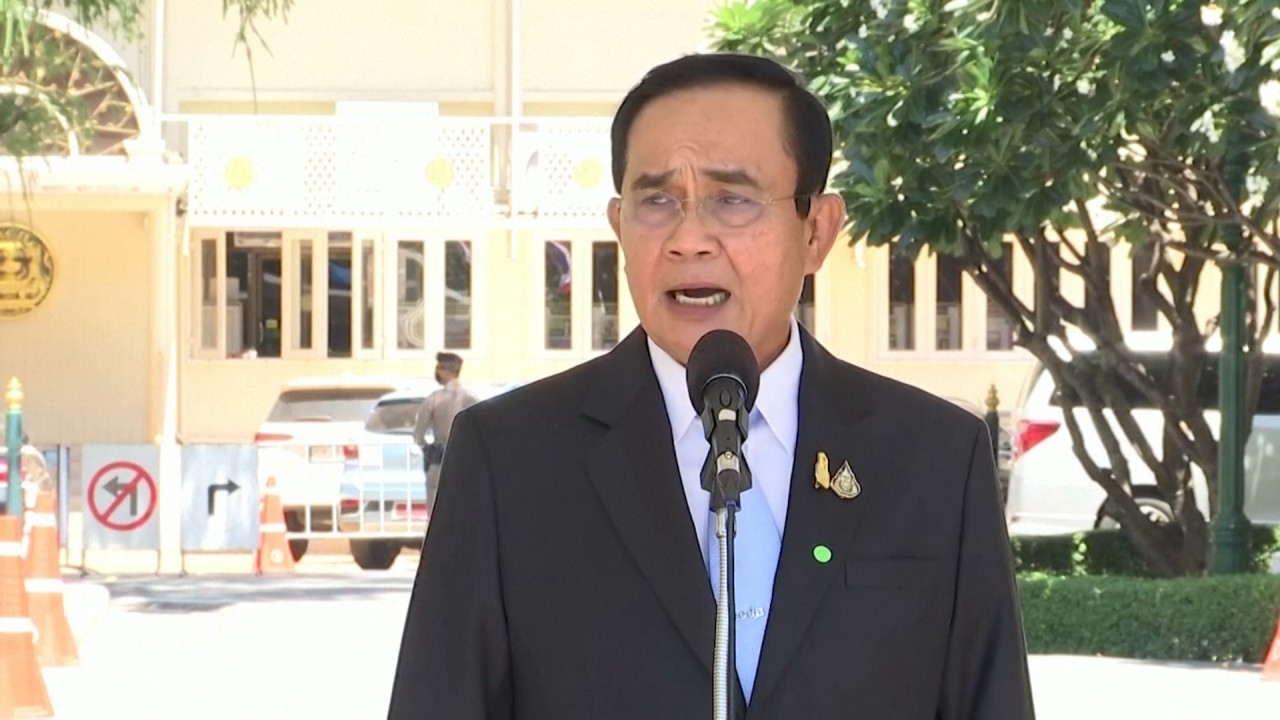
02:52
Thailand prime minister warns of national ‘collapse’ if protests keep rattling the country
Calls to reform the monarchy were also a key feature of a major rally in Bangkok in September, when protesters replaced a plaque honouring the Khana Ratsadon (Peoples’ Party) – the group that led the 1932 revolution which proclaimed the end of Thailand’s absolute monarchy. The original plaque had disappeared in mysterious circumstances in April 2017, with many Thais suspecting official involvement.
Thailand’s King Maha Vajiralongkorn, who ascended the throne in 2016, is widely seen to have reversed aspects of constitutional monarchy. In one particularly controversial incident, he revised the 2017 constitution – despite it having been endorsed by a public referendum – and transferred the Crown Property Bureau’s assets into his own name in 2018.
2. WHO SUPPORTS THE PROTESTS?
Thais of all ages have turned out in droves at every major demonstration since August, although most are under the age of 40.
Other political groups such as the “red shirts” – supporters of former prime minister Thaksin Shinawatra – have also turned out in the thousands, sharing the objective of ending military rule in politics.
Various public figures and celebrities have joined the cause too. Over the past week, bloggers, live-streamers and YouTubers have been raising money to keep the activism going and to help pay the bail for arrested activists. A Thai fan group of South Korean girl group Girls’ Generation, under the Twitter account @WithSNSD_TH, said it raised more than 779,000 baht (US$24,946) in just two days, while Thai beauty blogger Nutt Nisamanee transferred 50,000 baht to actor Intira Jaroenpura to help her support the protests in terms of logistics including getting helmets for protesters.
Members of the Milk Tea Alliance, an online democratic solidarity movement comprised of members from Thailand, Hong Kong and Taiwan, are another key group supporting the protests.
They have pledged to provide a channel of communication if the Thai government limits activists’ access to social media accounts used to organise protests.
The activist group the Taiwan Alliance for Thai Democracy has coordinated gatherings in Norway, the United States and Australia. Hong Kong activist Joshua Wong on Monday protested at the Thai Consulate-General in Hong Kong to show solidarity with the Thai protesters.
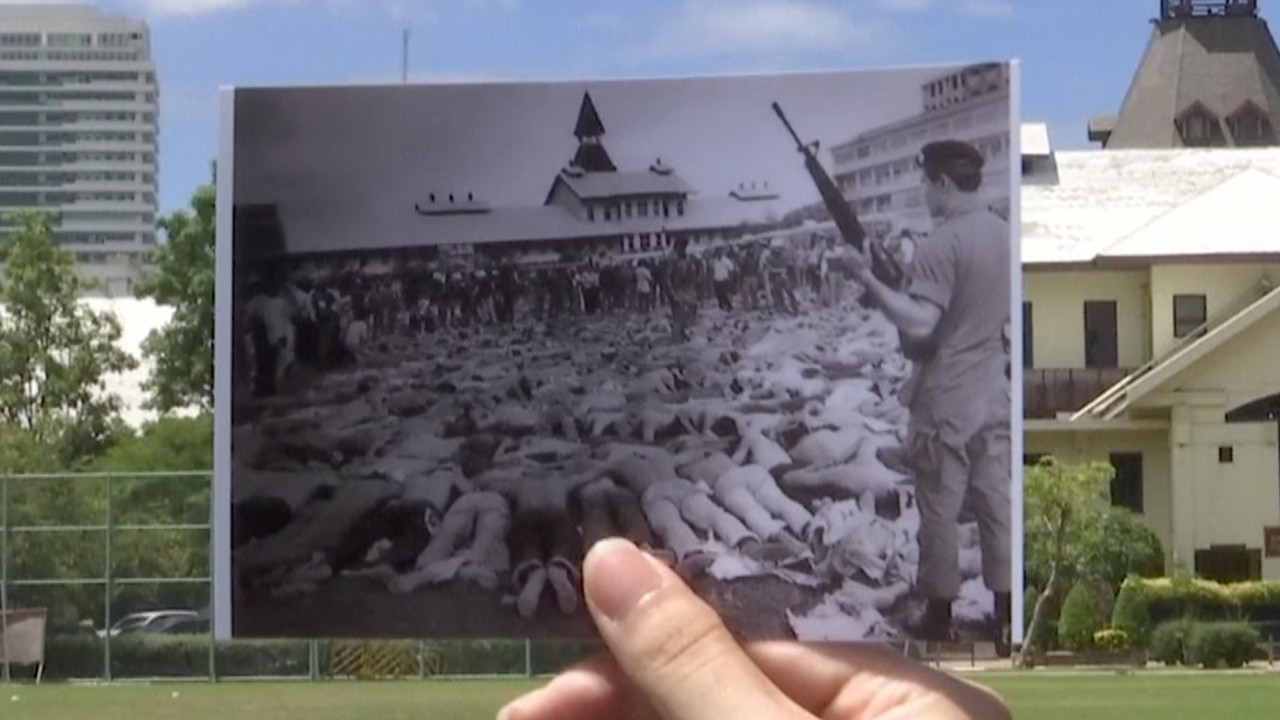
03:17
Thailand’s anti-government student protesters connect with 1976 Thammasat University massacre
3. HOW HAVE THINGS ESCALATED?
Since the 10 demands were raised in August, the youth protests have taken on a republican strain and hashtags like #republicofThailand and #WhyDoWeNeedAKing have trended on Twitter.
This unprecedented uprising, occurring just over a year after King Maha Vajiralongkorn’s coronation, has in part been driven by mostly German media reports that the monarch has been enjoying a lavish lifestyle in Germany where he took up residence almost a decade ago.
Such reports have upset and embarrassed many Thais, particularly at a time when the coronavirus has been ravaging the country’s economy.
In late September, the protesters campaigned for people to withdraw money from Siam Commercial Bank, where the king is the biggest stakeholder.
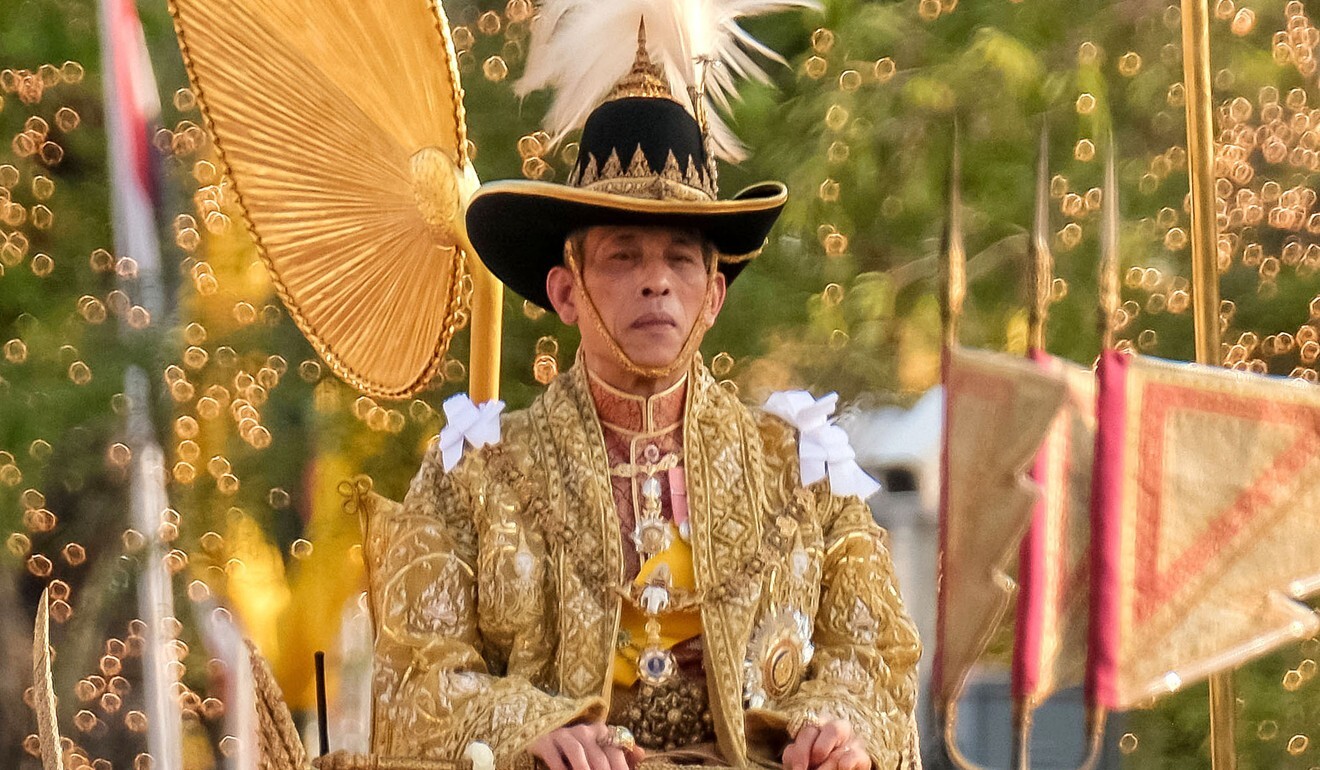
Weeks later, German Foreign Minister Heiko Maas told parliament: “We have made it clear that politics concerning Thailand should not be conducted from German soil” and “if there are guests in our country that conduct their state business from our soil we would always want to act to counteract that”.
These developments appear to have encouraged the movement and demonstrations have grown in size, piling further pressure on Prayuth’s government.
On October 14, the protesters had planned to demonstrate overnight in front of Government House but were dispersed the next morning following tensions with royalist groups gathered nearby earlier in the day.
Chaos erupted in the afternoon when a motorcade carrying Queen Suthida and Prince Dipangkorn Rasmijoti passed the protest area; protesters flashed their trademark three-finger salute (adapted from the Hollywood movie The Hunger Games) and shouted slogans such as “My tax!” and “Nation, religion and the people” – a perversion of the Thai motto “Nation, religion and the monarchy”.
Two activists were later charged with carrying out a harmful act towards the queen, an offence that carries a possible punishment of life imprisonment.
Authorities dispersed the protesters in the early hours of October 15 then announced that Bangkok would be in a State of Emergency until November 13. The decree banned gatherings of five or more people.
However, the next day some 15,000 people gathered at the Ratchaprasong shopping district in Bangkok in a defiant show of force.
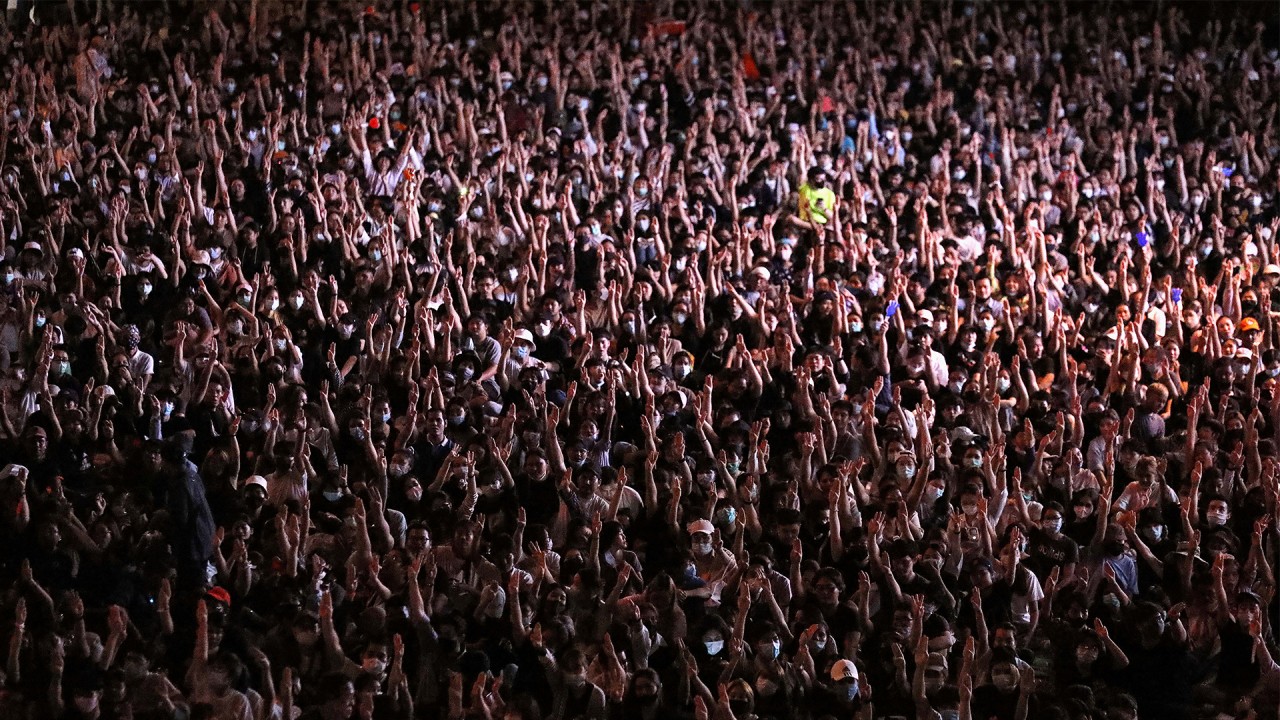
02:55
Thousands defy gathering ban to attend pro-democracy protest in Thailand
On Friday, the protesters regrouped at a nearby location only to be met with water cannons from police forces.
The government has also tried to stop the protests by disrupting the public transport system, but the protesters have responded by changing their tactics and protests remain a near-daily occurrence.
Adopting the “be water” mode from the playbook of the Hong Kong protests, they have since taken to leaderless flash-mob style protests that are announced – often on Telegram – only shortly before they occur, making it hard for authorities to pre-empt them.
4. HOW HAS THE THAI GOVERNMENT REACTED?
The use of water cannons by police on the night of October 16 has increased criticism of the Prayuth government response as being too severe given the protesters were mostly unarmed youths.
On October 16, Prayuth responded to demands for his resignation by asking, “What have I done?” while insisting that the State of Emergency was needed to keep order.
Last week, the former prime minister Yingluck Shinawatra, Prayuth’s former boss, posted on social media recalling the protests against her administration in 2013-14 and how Prayuth, then army chief, had questioned her capacity to weather the situation before leading the coup which ousted her.
King Maha Vajiralongkorn, who reportedly returned from his Alpine hotel in Bavaria, Germany, where he quarantined throughout the pandemic, in early October to perform the Buddhist Kathin ceremony has made no public mention of the protests.
However, on October 15, the king, who was visiting the country’s northeast with Queen Suthida, met former communists and said the country needed those who loved their nation and the monarchy. Vajiralongkorn took part in the military operations against the communist insurgency in the rural parts of Thailand in the 1970s.
The Thai stock market slumped on Monday as a result of the political gridlock, a trend which has continued as investors pull out funds in response to the growing political uncertainty.
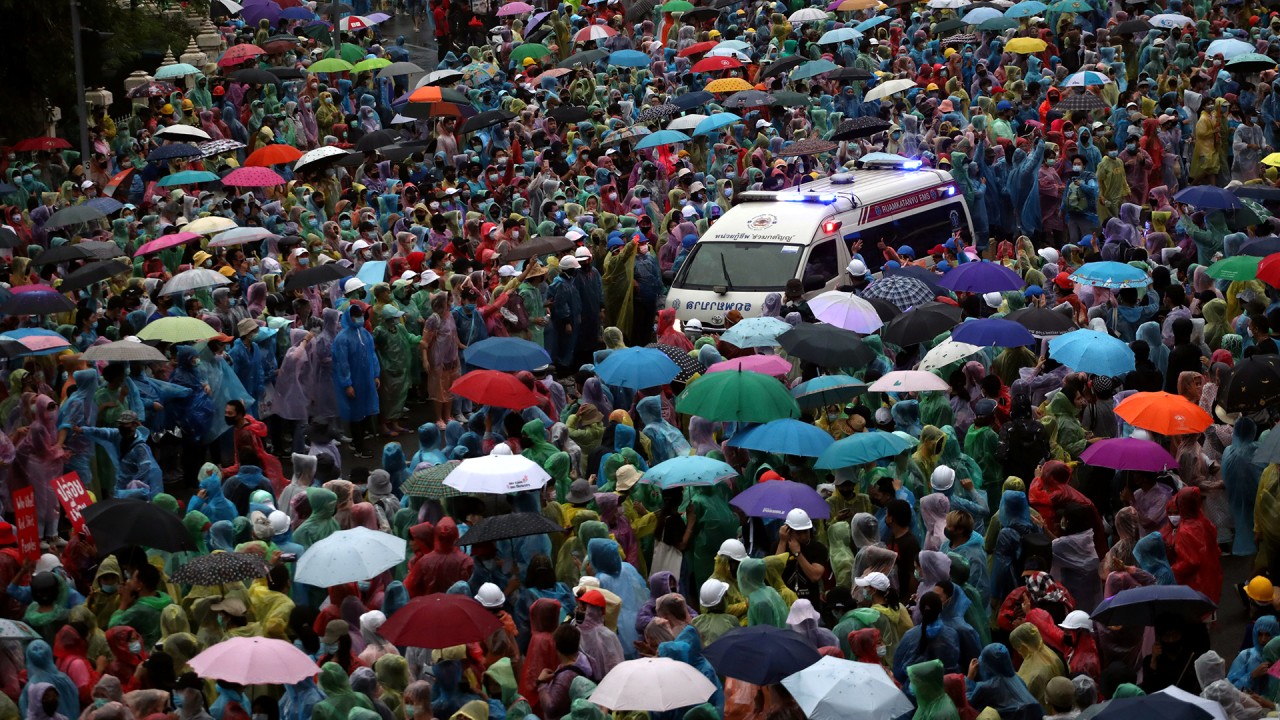
03:45
Thailand anti-government protests continue for fifth day as demonstrations stretch beyond Bangkok
5. WHAT HAPPENS NEXT?
Prajak Kongkirati, a political science scholar at Thammasat University, in an interview with BBC Thai this month, said an ideological gap now permeated all layers of society.
“The students have laid their cards on the table and it depends on how the elites respond,” he said. “I think the elites are too confident of their ability to rule and that they believe they don’t have to make any adjustment.”
This sets the stage for an impasse. In recent weeks the military-dominated Senate and royalist groups have both attempted to block proposals in parliament to revise the constitution.
To buy time, the Thai government has formed an ad hoc parliamentary committee to study six proposed bills concerning constitutional change for a period of thirty days.
“General Prayuth’s passive strategy of avoiding the political fray and leaving the ruling coalition to contend with the parliamentary opposition and the senators appears ineffective,” wrote Termsak Chalermpalanupap, visiting fellow, ISEAS – Yusof Ishak Institute this month. “The prime minister’s inability to silence mounting calls for reform of the monarchy inadvertently makes him appear a disloyal failure to royalists.”
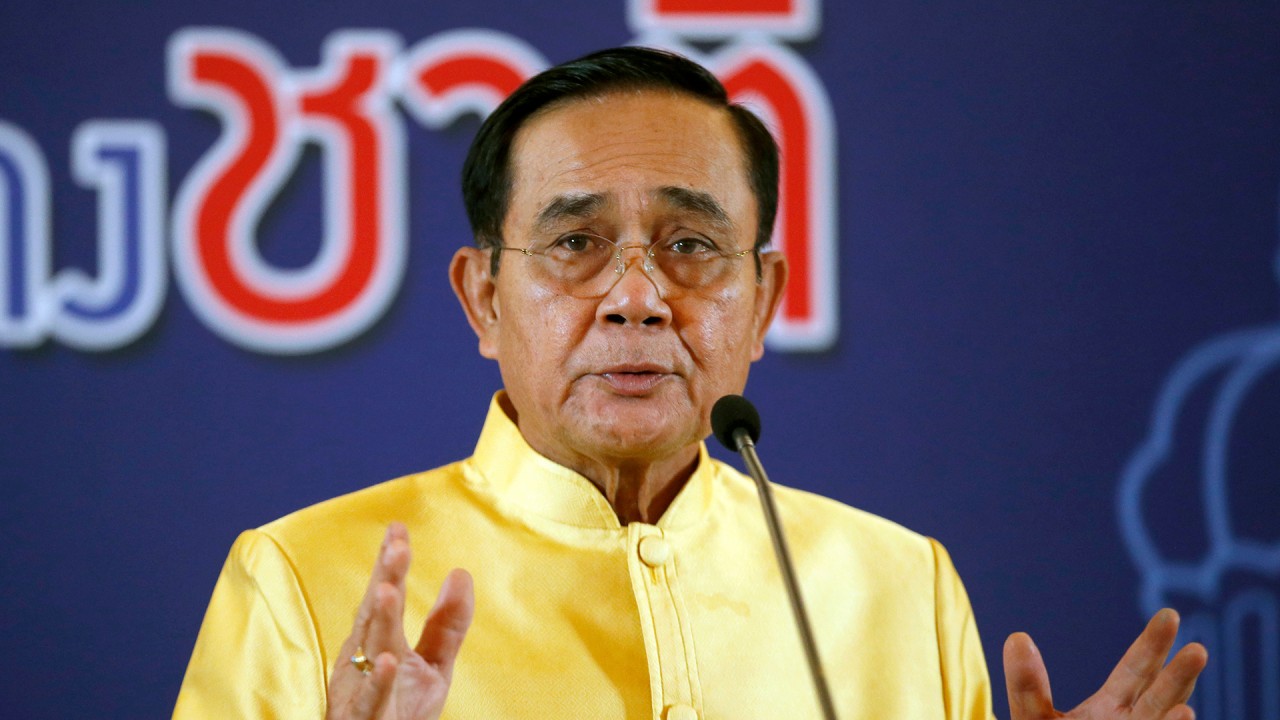
00:49
Thailand suspends TV station over protest coverage
House Speaker Chuan Leekpai is seeking to open an extraordinary parliamentary session this week to discuss the crisis.
Meanwhile, Prayuth and the newly installed royalist army chief General Narongpan Jitkaewthae recently said protecting the monarchy was the duty of all Thais.